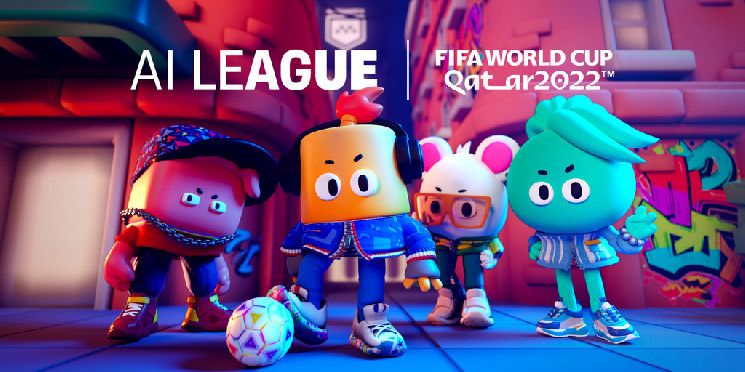FIFA today launched the open beta version of World Cup AI League, a 4v4 soccer strategy game that leverages artificial intelligence (AI) for its characters, cosmetics, and gameplay elements.
Web3 AI firm Altered State Machine developed the mobile game, which is currently available on Android with an iOS launch planned “soon,” according to a statement. The game’s open beta is an expanded iteration of its World Cup prediction game launched back in November.
FIFA World Cup AI League doesn’t have famous soccer stars like Christiano Ronaldo or 2022 World Cup winner Lionel Messi, both of whom have inked marketing and sponsorship deals with crypto industry companies.
Instead, AI League’s characters are cartoonish, brightly-colored creatures that have the vibe of a Pixar movie or the popular video game Fall Guys. In FIFA’s game, the characters’ movements are controlled by AI, which also determines their respective strengths and weaknesses. Similar to fantasy football or other sports management games, players act as team coaches and owners. The game currently offers maps inspired by the international locales of Paris, Rio de Janeiro, Yaoundé, and Seoul.
“Our mission is to lead casual gamers into the world of AI gaming in the metaverse, and with FIFA’s AI League, we are unlocking a unique new opportunity for football fans around the globe to interact with their favorite sport,” said Altered State Machine co-founder Aaron McDonald in a statement.
While AI League is a free-to-play game, an Altered State representative confirmed to Decrypt that it’s planning to launch an NFT marketplace for the game in the near future. When that debuts, the game’s characters will be minted into NFTs and all characters will be represented via NFTs going forward.
AI League currently offers an in-game currency for users to buy cosmetic enhancements for their players, but that currency is notably not a cryptocurrency, in part due to Apple and Google restrictions surrounding crypto trading.
The representative said that the NFT deployment will come later because the company wants the user experience to feel frictionless, and doesn’t want players to be overly focused on or distracted by the NFT elements.
It’s a strategy that’s becoming more common in the Web3 space amid criticism from gamers, leading some developers to launch games in a traditional “Web2” form first without NFT or crypto elements—and then add them in later.
And FIFA, the international governing body of soccer and the organization behind the World Cup, is no stranger to the crypto world: it enlisted a crypto sponsor for the 2022 World Cup and launched an NFT platform, along with partnering with other Web3 game studios for World Cup-themed integrations.
 decrypt.co
decrypt.co
